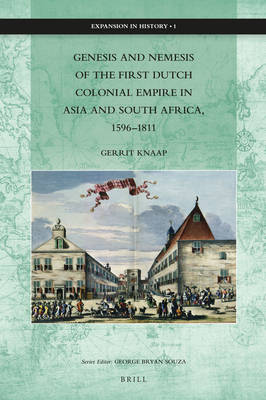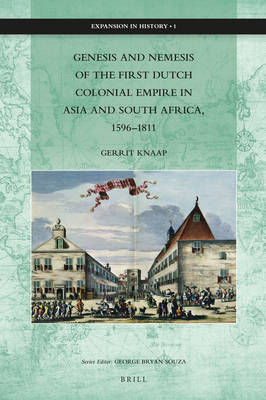
- Afhalen na 1 uur in een winkel met voorraad
- Gratis thuislevering in België vanaf € 30
- Ruim aanbod met 7 miljoen producten
- Afhalen na 1 uur in een winkel met voorraad
- Gratis thuislevering in België vanaf € 30
- Ruim aanbod met 7 miljoen producten
Zoeken
Genesis and Nemesis of the First Dutch Colonial Empire in Asia and South Africa, 1596-1811
Gerrit Knaap
€ 153,70
+ 307 punten
Omschrijving
Based upon a sweeping command of Dutch East India Company (VOC) primary sources, Knaap's manuscript offers a thought-provoking thematic examination and chronological survey of the Dutch Republic's overseas and colonial expansion in Asia and South Africa, mainly through the VOC and its successors, the Batavian Republic, the Kingdom of Holland and Franco-Dutch Java, over a period of more than two centuries, 1596-1811. It elucidates and deals with several conceptual and theoretical issues that are intrinsically important and germane to a polity's definition of and how it chooses to execute the process of expansion overseas in the early modern period. One of this work's major arguments and contributions is its advocacy that the Dutch VOC's expansion in Asia was an imperial project and must be seen as an act of empire, or, at the very minimum, the attempt to construct one via the innovative utilization of a highly organized and dynamic commercial institution with significant political and diplomatic power and naval and military resources.
Specificaties
Betrokkenen
- Auteur(s):
- Uitgeverij:
Inhoud
- Aantal bladzijden:
- 472
- Taal:
- Engels
- Reeks:
- Reeksnummer:
- nr. 1
Eigenschappen
- Productcode (EAN):
- 9789004527997
- Verschijningsdatum:
- 22/12/2022
- Uitvoering:
- Hardcover
- Formaat:
- Genaaid
- Afmetingen:
- 155 mm x 234 mm
- Gewicht:
- 889 g

Alleen bij Standaard Boekhandel
+ 307 punten op je klantenkaart van Standaard Boekhandel
Beoordelingen
We publiceren alleen reviews die voldoen aan de voorwaarden voor reviews. Bekijk onze voorwaarden voor reviews.







